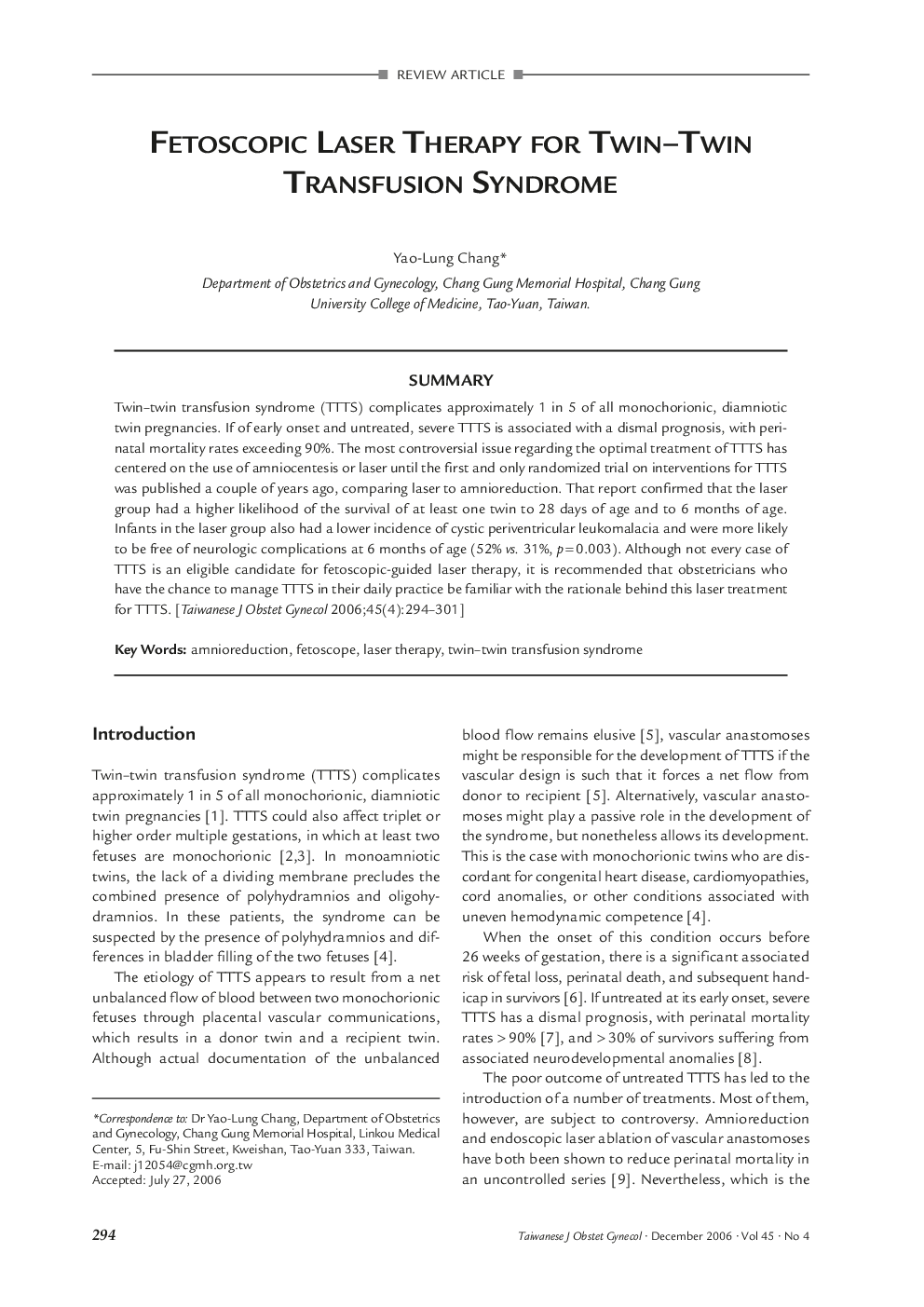| Article ID | Journal | Published Year | Pages | File Type |
|---|---|---|---|---|
| 3976311 | Taiwanese Journal of Obstetrics and Gynecology | 2006 | 8 Pages |
SummaryTwin-twin transfusion syndrome (TTTS) complicates approximately 1 in 5 of all monochorionic, diamniotic twin pregnancies. If of early onset and untreated, severe TTTS is associated with a dismal prognosis, with perinatal mortality rates exceeding 90%. The most controversial issue regarding the optimal treatment of TTTS has centered on the use of amniocentesis or laser until the first and only randomized trial on interventions for TTTS was published a couple of years ago, comparing laser to amnioreduction. That report confirmed that the laser group had a higher likelihood of the survival of at least one twin to 28 days of age and to 6 months of age. Infants in the laser group also had a lower incidence of cystic periventricular leukomalacia and were more likely to be free of neurologic complications at 6 months of age (52% vs. 31%, p = 0.003). Although not every case of TTTS is an eligible candidate for fetoscopic-guided laser therapy, it is recommended that obstetricians who have the chance to manage TTTS in their daily practice be familiar with the rationale behind this laser treatment for TTTS.
